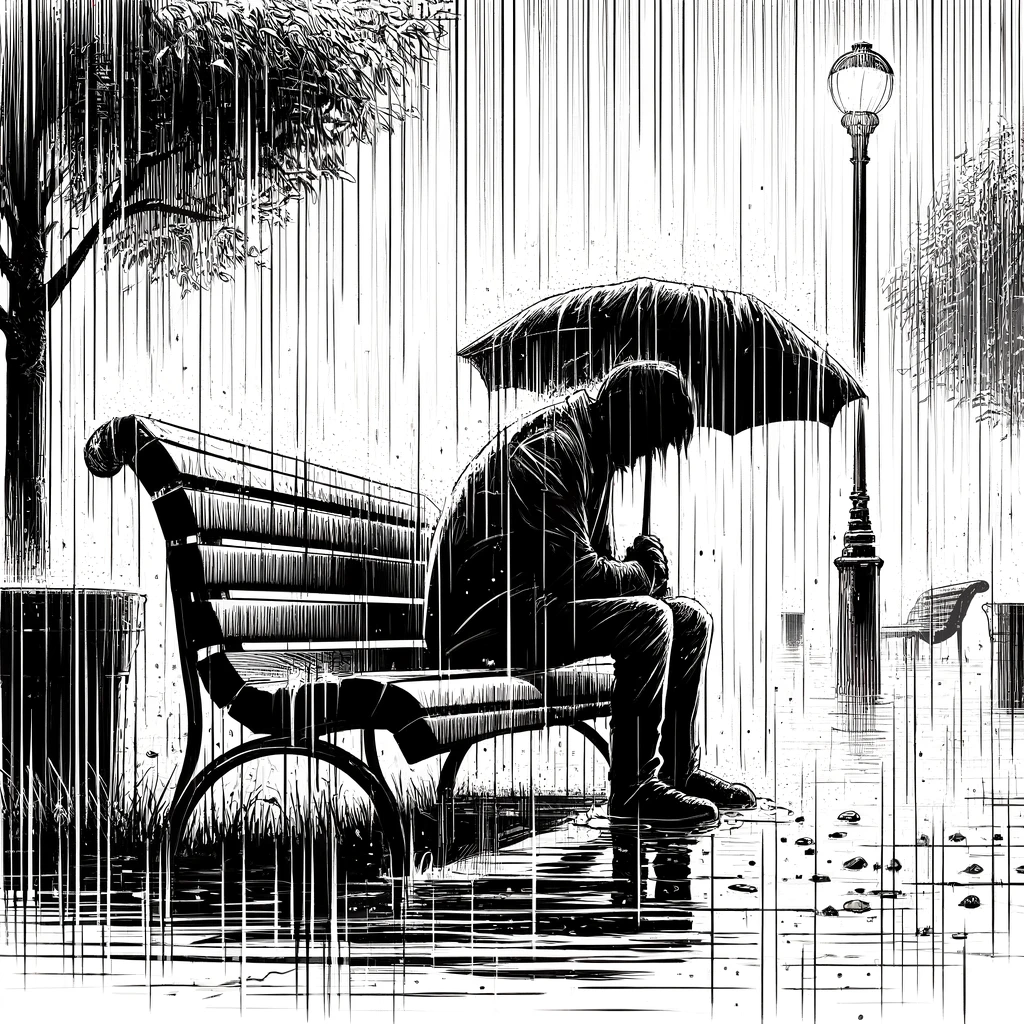Miserable
Definition
Miserable pertains to feeling or expressing extreme unhappiness or discomfort.
Parts of Speech
- Adjective
Pronunciation
American English
- IPA Pronunciation: /ˈmɪzərəbəl/
- Respelling: MIZ-uh-ruh-buhl (with "MIZ" as in "miss," "uh" as in "sofa," "ruh" as in "run," and "buhl" as in "bubble")
British English
- IPA Pronunciation: /ˈmɪzrəbl/
- Respelling: MIZ-ruh-bl (with "MIZ" as in "miss," "ruh" as in "run," and "bl" as in "bubble")
In both dialects, "miserable" places the primary stress on the first syllable, "MIZ." The pronunciation is similar across both American and British English, with a slight difference in the vowel sound and syllable articulation: "MIZ-uh-ruh-buhl" in American English and "MIZ-ruh-bl" in British English.
Etymology
The term "miserable" derives from the Old French "misérable", taken from the Latin word "miserabilis", meaning "pitiable", which is based on "miser", Latin for "wretched" or "unhappy".
Derivatives
- Miserably
- Miserableness
- Miserabilist
- Miserabilism
- Miserability
Synonyms
- Unhappy
- Wretched
- Dismal
Antonyms
- Joyful
- Content
- Happy
Usage
"Miserable" is typically used to describe a feeling of unhappiness or discomfort, or a situation that induces such feelings.
- He looked miserable after hearing the sad news.
- The weather outside was cold and miserable.
Related Terms
- Despondent
- Sorrowful
- Melancholic
- Downhearted
- Distressed
Detailed Definition
Adjective
- Feeling or Displaying Distress or Unhappiness: Experiencing or showing a state of discomfort or sadness.
- Example: She felt miserable after losing her favorite toy.
- Of Poor Quality: Indicating or suggesting something that is of a low standard or unsatisfactory nature.
- Example: The movie was miserable, with a weak plot and bad acting.
- Causing or Accompanied by Great Discomfort or Distress: Having the effect of making someone feel unhappy or uncomfortable.
- Example: The long journey was made even more miserable by the constant rain.
miserable



🇨🇳 Mandarin
- 可怜 (Pitiful, miserable)
- IPA: [kě lián]
- Respell: ke lian
- 悲惨 (Tragic, miserable)
- IPA: [bēi cǎn]
- Respell: bei can
🇮🇳 Hindi
- दुखी (Sad, miserable)
- IPA: [d̪ʊkʰiː]
- Respell: dukhi
- शोचनीय (Deplorable, miserable)
- IPA: [ʃoʧnij]
- Respell: shochaniy
🇪🇸 Spanish
- Miserable (Miserable, wretched)
- IPA: [miseˈɾable]
- Respell: miserable
- Infeliz (Unhappy, miserable)
- IPA: [infeˈlis]
- Respell: infeliz
🇫🇷 French
- Misérable (Miserable, wretched)
- IPA: [mizeʁabl]
- Respell: misérable
- Malheureux (Unhappy, miserable)
- IPA: [malœʁø]
- Respell: malheureux
🇸🇦 Modern Standard Arabic
- بائس (Miserable, wretched)
- IPA: [baːʔis]
- Respell: ba'is
- تعيس (Unhappy, miserable)
- IPA: [taˈʔiːs]
- Respell: taeis
🇧🇩 Bengali
- দুঃখিত (Sad, miserable)
- IPA: [d̪ukʰit̪o]
- Respell: dukhito
- দরিদ্র (Poor, miserable)
- IPA: [dɔridrɔ]
- Respell: doridro
🇷🇺 Russian
- Несчастный (Unhappy, miserable)
- IPA: [nʲɪˈɕːastnɨj]
- Respell: neschastny
- Жалкий (Pitiful, miserable)
- IPA: [ʐɐlˈkʲij]
- Respell: zhalkiy
🇵🇹 Portuguese
- Miserável (Miserable, wretched)
- IPA: [mizeˈɾavɛɫ]
- Respell: miserável
- Infeliz (Unhappy, miserable)
- IPA: [ĩfeˈlis]
- Respell: infeliz
🇮🇩 Indonesian
- Menyedihkan (Sad, miserable)
- IPA: [mənjeˈdihkan]
- Respell: menyedihkan
- Sengsara (Miserable, suffering)
- IPA: [səŋˈsara]
- Respell: sengsara
🇩🇪 German
- Elend (Miserable, wretched)
- IPA: [ˈeːlənt]
- Respell: Elend
- Unglücklich (Unhappy, miserable)
- IPA: [ʊnˈɡlʏklɪç]
- Respell: unglücklich
🇯🇵 Japanese
- みじめ (Miserable, pitiful)
- IPA: [miʑime]
- Respell: mijime
- 悲惨 (Tragic, miserable)
- IPA: [hisaɴ]
- Respell: hisan
🇻🇳 Vietnamese
- Khốn khổ (Miserable, wretched)
- IPA: [kʰon kʰo]
- Respell: khon kho
- Đau khổ (Suffering, miserable)
- IPA: [ɗau kʰo]
- Respell: dau kho
🇰🇷 Korean
- 비참한 (Miserable, wretched)
- IPA: [bi.tɕʰam.han]
- Respell: bichamhan
- 불행한 (Unhappy, miserable)
- IPA: [bul.hɛŋ.han]
- Respell: bulhaenghan
🇹🇷 Turkish
- Sefil (Miserable, wretched)
- IPA: [seˈfil]
- Respell: sefil
- Mutsuz (Unhappy, miserable)
- IPA: [mutˈsuz]
- Respell: mutsuz
🇵🇰 Urdu
- بدحال (Miserable, wretched)
- IPA: [bəd.haːl]
- Respell: badhal
- ناخوش (Unhappy, miserable)
- IPA: [naː.xoʃ]
- Respell: nakhosh





